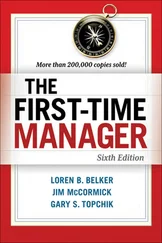Джон Болл - The First Team
Здесь есть возможность читать онлайн «Джон Болл - The First Team» весь текст электронной книги совершенно бесплатно (целиком полную версию без сокращений). В некоторых случаях можно слушать аудио, скачать через торрент в формате fb2 и присутствует краткое содержание. Год выпуска: 2013, Жанр: Триллер, на английском языке. Описание произведения, (предисловие) а так же отзывы посетителей доступны на портале библиотеки ЛибКат.
- Название:The First Team
- Автор:
- Жанр:
- Год:2013
- ISBN:нет данных
- Рейтинг книги:5 / 5. Голосов: 1
-
Избранное:Добавить в избранное
- Отзывы:
-
Ваша оценка:
- 100
- 1
- 2
- 3
- 4
- 5
The First Team: краткое содержание, описание и аннотация
Предлагаем к чтению аннотацию, описание, краткое содержание или предисловие (зависит от того, что написал сам автор книги «The First Team»). Если вы не нашли необходимую информацию о книге — напишите в комментариях, мы постараемся отыскать её.
Student protesters are being slaughtered in the Midwest.
The Jewish pogroms have begun.
You are now living in Soviet — occupied America!
One nuclear submarine and a handful of determined patriots against the combined might of Russia and Soviet-occupied America… The Most Explosive and Gripping “What If” Novel of Our Time!
First published January 1971
The First Team — читать онлайн бесплатно полную книгу (весь текст) целиком
Ниже представлен текст книги, разбитый по страницам. Система сохранения места последней прочитанной страницы, позволяет с удобством читать онлайн бесплатно книгу «The First Team», без необходимости каждый раз заново искать на чём Вы остановились. Поставьте закладку, и сможете в любой момент перейти на страницу, на которой закончили чтение.
Интервал:
Закладка:
It took Kepinsky considerably longer than he wished to get into the somewhat complicated decontamination suit that he had borrowed. He was helped, but the assistance seemed to do nothing to speed him on his way. As he struggled to encase himself properly he cursed the weakness within himself that had kept him standing on the dock for so long when, as he knew now, he should have been inside the submarine making a firsthand inspection of everything. His stomach knotted when he realized that the only report he could give as of that moment would be based on what he had heard and what he had been told by the Americans. The only tangible thing he had seen himself was the reading on the radiation detector on the dock. When he was fully ready he went across the brow behind the supervisor and climbed down inside the hull.
He was almost relieved to discover that every one of the men on board was hard at work doing all of the things he knew to be necessary. Because of his suit he could not be recognized, but he was unaware of the red flashlight signals that had been given just prior to his coming on board.
He spent almost thirty minutes examining everything and was satisfied, first that this was a real and authentic nuclear mishap and second that he could so report on the basis of close personal inspection. His own position was now far more secure, and with that knowledge relief flooded through him. He still could not explain his delay in seeing things for himself, but with the data he had now he was confident that he could conjure some kind of a realistic excuse that would sound valid.
He was tapped on the shoulder by Morrison, who then indicated the dial of his watch. A radiation counter close to the reactor compartment was going like mad, which was adequate warning. It had to be genuine because the independent instrument on the pier, which was known to be untampered with, had been telling the same story. Kepinsky turned his back on the hard-working men crowded into the available space and made his way up the ladders with no regrets. Later on, at an appropriate time, he would go inside again.
Not until he was well out of his protective clothing did the real work inside the submarine resume. The waiting divers were signaled, the light-up crew went back to work, and the cooling pumps were started. On the dock the day-shift men came back as a group, escorted by two guards, obviously both tired and unhappy. When the decontamination suit had been returned to its proper owner and the man had gone about getting into it once more, Morrison joined the yard commander for a brief conference with both Kepinsky and the commander’s overseer tuned in.
“I think we can*let most of the day-shift men go home,” he said. “I’d like to keep a few on hand for extra work if that can be managed, particularly plumbers if there are any.”
“How about relieving them and calling some fresh men on the job?” the commander suggested.
“You might have trouble getting anyone to come in; the word will be out now all over town. One suggestion: the men are used to this ship. Up in the forward end, shielded from the radiation, there are some bunks which they could use. Then when we need them we can wake them up.”
The commander appeared to consider that. “Why not,” he said finally, “if we can depend on them to stay out of the way until they’re needed.”
“They will, I can guarantee that — if they value their skins.” “How many do you think you’ll need?”
Morrison glanced over at the waiting men. “Half of them would be enough.”
The commander walked over to where the day-shift workers were gathered. “Some of you can go home now,” he said, “the rest of you we’ll keep on for a while longer. You’re all getting overtime, so take it easy.”
There was a brief murmur from the men, but the assurance of the extra pay was obviously what they wanted to hear. Quickly the commander sorted them into two groups, then he dismissed the first contingent and saw them start down the pier — anxious now to get away. “We’ve made some arrangements for the rest of you,” he announced. “We’ve got the radiation shielded off from the forepart of the ship. There are plenty of crew bunks down there that you can use. So you might as well sack out, and if we need you we’ll wake you up.”
“I don’t think we’d like that,” Summers said. “It’s too dangerous.”
The commander bristled. “Listen, you, in case you haven’t heard, things aren’t the way that they used to be. We’re all taking orders now whether we like it or not. Personally I don’t like it, but there isn’t a damn thing I can do about it. Right now the job is to protect our own men and the people that live close around this base.
“We still get paid?” Summers pressed.
“Yes, you get paid — overtime rates even while you’re in the sack.”
“All right.” Resignedly Summers got to his feet.
Slowly the others followed suit. Morrison, bulky in his decontamination clothing, led them on board and escorted them down the front hatch well forward of where the critical work was being done. Kepinsky carefully counted them; there were twenty-three. They could do no harm where they were going because he personally had seen the thorough precautions that had been taken to seal off the front end of the submarine.
A Jeep driven by an enemy security agent came slowly down the pier and stopped beside Kepinsky. “A report is wanted,” the agent said in his own language.
“I just came up from the submarine a few moments ago,” Kepinsky answered. “I made a personal inspection in detail. It is presently very hazardous down there.”
“Is there any question?”
Kepinsky shook his head emphatically. “None at all; our own equipment was the first to detect the leak. They are working to repair it very efficiently; they have no desire to have a disaster in their own community. If they fail they will all die and so will many others all around here.”
“You are taking a chance, are you not?”
“Yes, but it is my duty. You can read the meter for yourself.”
The security man was satisfied. As he turned his vehicle around he reflected on the fact that it was his good fortune that he was not a nuclear expert. If Kepinsky lived through it the rot might still be buried deep in the marrow of his bones and there was a good chance that he would never sire any more children. He left the area at a steady pace and was grateful that the security headquarters lay on the other side of a low hill.
With the day crew no longer in evidence, the night settled down to stillness and waiting. A truck arrived from the cafeteria and set up a chow line of sorts to feed the men who were working inside the ship. When the word was passed they came up in small groups, ate hastily, and then went back below again. They showed the strain of their work on their faces and Kepinsky did not envy them. He kept no count of the number that ate, but it would not have helped him if he had because he did not know the exact number of men who were working down inside the pressure hull. He therefore was unaware that one man chose not to show himself. This man’s features were somewhat distinctive and his smaller build was in contrast to some of the others’. Because there was a slight element of risk, he chose to go hungry.
The commander had left together with his omnipresent shadow, the overseer, who followed him even when he went to the latrine. A small handful of guards remained on duty, but they were relaxing as much as they dared. The depressive effect of the inert night was thick in the air. A small truck came with a relief gun crew which took over the heavy fieldpiece on the extreme end of the pier, exercised it briefly, and then settled in to maintain watch for the next several hours.
Читать дальшеИнтервал:
Закладка:
Похожие книги на «The First Team»
Представляем Вашему вниманию похожие книги на «The First Team» списком для выбора. Мы отобрали схожую по названию и смыслу литературу в надежде предоставить читателям больше вариантов отыскать новые, интересные, ещё непрочитанные произведения.
Обсуждение, отзывы о книге «The First Team» и просто собственные мнения читателей. Оставьте ваши комментарии, напишите, что Вы думаете о произведении, его смысле или главных героях. Укажите что конкретно понравилось, а что нет, и почему Вы так считаете.












